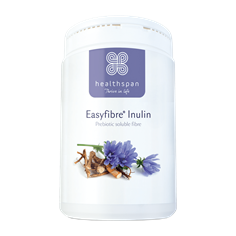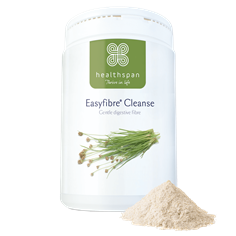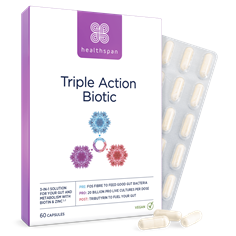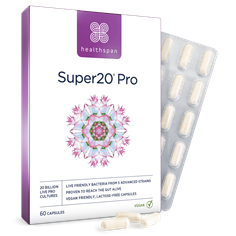Colonic irrigation - or ‘cleansing of the colon’ - is a therapy that’s been around a long time: there's evidence it existed in ancient Chinese, Greek and Egyptian civilizations. However, its recent spike in popularity is most likely explained thanks to it being used regularly by celebs seeking a digestive system 'spring clean'.
The question is: does it actually do us any good? Or are there more important things we should be focusing on to support our gut health?
This article will explore the potential benefits of colonic hydrotherapy, including when you might consider using it, as well as when it might be better to choose a different approach for supporting your gut health.
What is colonic irrigation?
Colonic irrigation is a form of colon cleansing, designed to help remove toxins and a build-up of stools from the colon and lower digestive tract. The most common form of colonic irrigation is colonic hydrotherapy. Water is used to wash out the colon, remove waste, rehydrate the bowel and stimulate peristalsis - e.g the movement of stools through the lower bowel.
Most colonic irrigation therapists use a specialist hydrotherapy machine, which gently pushes warm, clean filtered water through a tube that's inserted into the back passage. Several cycles of flushing that pump water inside and out to allow the release of waste material are common.
Some colonic hydrotherapists mix herbs or other liquids into the water, to support the cleansing of the bowel. The idea is that putrefied faeces can build up inside the walls of the large intestine, which can cause inflammation and potentially damage the gut wall, as well as providing a site for parasites and pathogenic organisms to reside.
How effective is colonic hydrotherapy?
Whilst there has been no conclusive research evidence for the effectiveness of colonic hydrotherapy, some studies have reported concerns over potential issues with hygiene and full regulation of practitioners. However, there is a vast body of anecdotal evidence with people claiming to have experienced benefit to their digestive discomfort after receiving colonic hydrotherapy. Many people who experience regular constipation could also experience a benefit from this type of therapy, helping to remove a build-up of stools and support movement of waste material out of the bowel.
However, it's important to find a properly trained colonic hydrotherapist who fully understands the workings of the bowel, is regulated and can also advise how you can support long term bowel health. There's some concern that using this form of treatment too frequently could make the bowel sluggish and less able to naturally support peristalsis in the future without being stimulated. It's also important to remember that with continual flushing of the colon, disruption to the delicate balance of gut microflora living in the bowel is inevitable - and gut microflora are very important for our health.
On the other hand, research suggests that those with Irritable Bowel Syndrome or other forms of bowel discomfort often have an imbalance of gut microflora1 anyway. Using colonic irrigation as a form of bowel cleansing could actually help to clear unwanted organisms from the large intestine, before successful reintroducing the right kind bacteria can succeed. This is sometimes provided during the same treatment through the hydrotherapy tube, or through including fermented foods and beneficial bacteria supplements in the diet. To be honest, taking beneficial bacteria should be an essential add on to any colonic irrigation treatment.
Are there alternatives to colonic hydrotherapy?
One of the problems with colonic irrigation is that it does not address all the potential underlying causes of digestive discomfort. It's like continually scrubbing your kitchen floor, whilst at the same time continually pouring dirt on it. If you don't work on improving your diet and lifestyle and address the issues that may be causing you digestive discomfort, no amount of bowel cleansing is going to deal with the underlying problem.
Therefore, cleaning up your diet is a vitally important first step to helping your gut health, and you may find that you no longer need to consider colonic hydrotherapy or you may wish to use this alongside one or two treatments. Here are three key aspects of your diet to look at as a key starting point to improving your gut health:
- Reduce and remove sugary foods from your diet as much as possible, as well as white, refined foods such as biscuits, cakes, white bread and other white grains. Instead switch to wholegrain, slow releasing foods which feed your beneficial gut microflora and help the right kind of organisms to populate. Too much sugary and refined foods can increase gut fermentation and bloating, causing the wrong kind of organisms to take hold.
- Reduce your intake of bread and other wheat products. These can exacerbate discomfort in the bowel, even in those who do not have coeliac disease. Wheat is especially high in gluten, and we know from research that gluten can increase the release of a compound called zonulin, which opens the tight junctions in your gut lining and can exacerbate gut permeability. This can be an underlying problem in those with IBS and digestive discomfort, making it more likely that you'll experience gut distress. Try talking to your doctor about reducing your gluten intake.
- Aim to eat more vegetables, but don't overdo the cruciferous ones as these can cause bloating in some people due to them being high in FODMAPs. Put just one or two of these into a meal (e.g a broccoli floret, a piece of cauliflower or a spoonful of cabbage). However, it is important to include 6 to 8 different types of vegetables every day, as these again help to feed the good bacteria in your gut.
Can my lifestyle support a bowel cleanse?
We often forget about the importance of relaxation and stress relief for our bowel health, but if you're more stressed and don't take enough time to relax, this can also affect your gut health. Firstly, stress may increase your risk of experiencing gut dysbiosis, an imbalance of beneficial gut bacteria. It may also increase your risk of developing leaky gut (gut permeability), which is an underlying cause of food intolerances. Finally, stress can inhibit the gut's natural peristaltic movement, which pushes stools along the gut. This may increase your risk of developing constipation.
Colonic hydrotherapy may be very useful alongside addressing the above points. On its own you may experience some immediate relief; however, it's not going to benefit you long term, because you are not addressing the underlying causes of your gut distress in the first place. A better idea would be a modified diet and a considered probiotic program to get your biome back in action.











